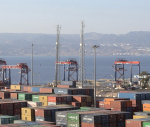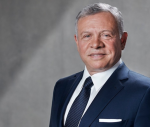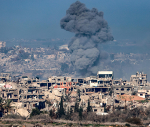You are here
Salvaging Iraq
Aug 19,2014 - Last updated at Aug 19,2014
The almost impossible task of salvaging Iraq has begun along two distinct, but interconnected, courses: political and military.
Last week’s decision by former prime minister Nouri Al Maliki to withdraw his candidacy for a third term as head of the Iraqi government has paved the way for the launch of a fresh political process aimed at national reconciliation.
Prime Minister designate Haidar Al Abadi is about to unveil his programme, one that will be scrutinised by Sunnis, moderate Shiites and Kurds, among others.
Maliki’s departure has been greeted by all political and religious forces inside Iraq, in addition to the US, Iran and Saudi Arabia, underlining fears that the country was close to disintegrating.
The second course is military, in the shape of American aerial bombardment of the Islamic State targets in areas under its control.
Kurdish peshmerga forces have moved on IS strongholds under US air cover, dislodging the militant group from the strategically important Mosul dam on Monday and liberating other areas in Nineveh governorate.
IS forces are said to be retreating to Mosul in preparation for major battles.
The West has been sending arms to Iraqi Kurdistan to boost its forces after IS militants ventured into the autonomous region last week. It was this crucial development that prompted US President Barack Obama and his European allies to rally to the aid of the Erbil government.
But is this enough to save Iraq?
Abadi belongs to the same party Maliki does, Al Dawa, and is member of his State of Law coalition that emerged winner in the legislative elections held earlier this year.
He has little political experience, and some Sunni forces doubt that he will be able to entice them to join the political process.
Six Sunni governorates rebelled against the central government in Baghdad and their insurgency helped IS forces take over Mosul and other towns.
Under Maliki, Iraq’s Sunni minority suffered from exclusion and marginalisation. Now it wants more autonomy from the central government and a bigger share in the political process.
Abadi will have to mend fences with Iraqi Kurdistan, which has moved closer to independence and is now in control of contested areas such as Kirkuk. It is a big challenge for the federal government.
He must also reunite the Shiites, who have been divided by Maliki’s self-serving policies during the last eight years. In addition, the new prime minister must take swift action to end the persecution and forced migration of Iraq’s Christians and other religious minorities.
He also needs to chart a moderate course that will end the rift with Gulf countries, especially Saudi Arabia, while maintaining a special relationship with both Iran and the United States.
But the immediate challenge, if he succeeds in forming a government, will be to rebuild the Iraqi army and expel IS forces from Sunni governorates, which represent more than one-third of Iraq’s area.
To do so he will need the help of Sunni tribes.
Meanwhile, the current US operation may weaken IS militants and evict them from certain areas where they are in control, but it is unlikely to defeat them.
IS militants control large swathes of land, extending from Iraq’s north to Syria’s eastern region. In Syria, they have become a formidable power with access to heavy weapons and financial resources.
IS has thousands of fighters under its control and without ground troops, it will be impossible to wipe it out.
Ironically, the Syrian regime’s air force has joined efforts to attack IS positions. This will embolden President Bashar Assad who repeatedly warned the West against the threat of foreign jihadists fighting in Syria.
America’s war on IS in Iraq has raised questions about Washington’s lack of clear policy on Syria.
If IS represents such a grave danger in Iraq, how is this different from Syria?
And what will happen if IS forces are driven back to their strongholds in Syria? Will the US and its allies attack them there?
On the other hand, Obama will have to decide in the near future if the US aerial bombardment in northern Iraq will be enough to thwart the threat of IS forces.
He has insisted that there will be no boots on the ground, but with the collapse of the Iraqi army and the limited capacity of the Peshmerga, it will be impossible to deal a fatal blow to IS in Iraq any time soon.
One thing is clear now, and that is the US’ and Europe’s realisation that the IS poses an unprecedented threat not only to Iraq but to the entire region and perhaps to Western interests at home.
Salvaging Iraq for now means that an inclusive political formula must be reached first, followed by concerted regional and international efforts to address the increasing threat of IS.
So far, these two courses are insufficient and may stumble any moment.
The writer is a journalist and political commentator based in Amman.













